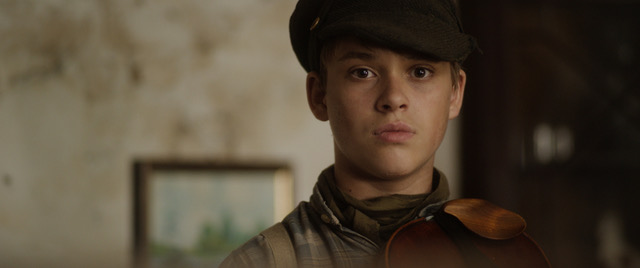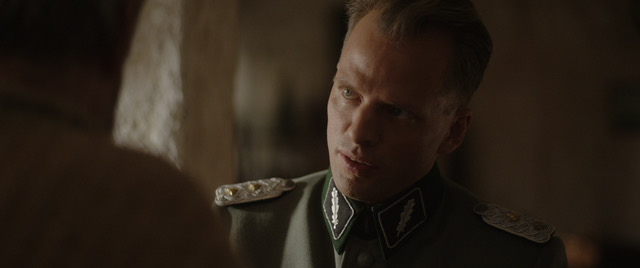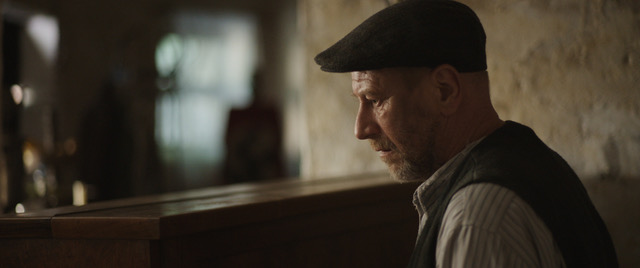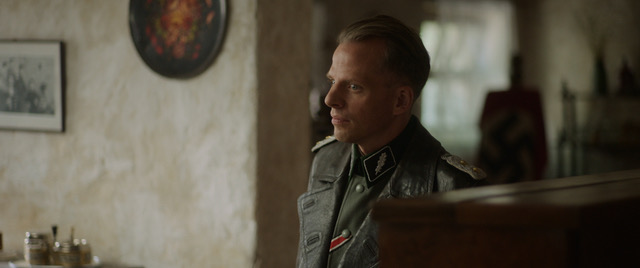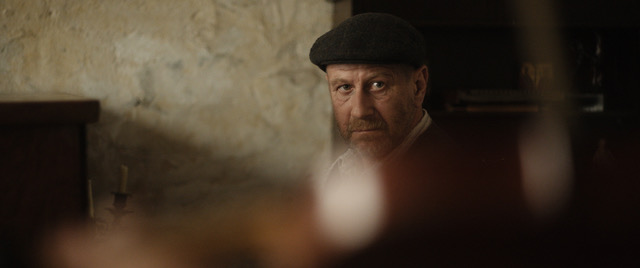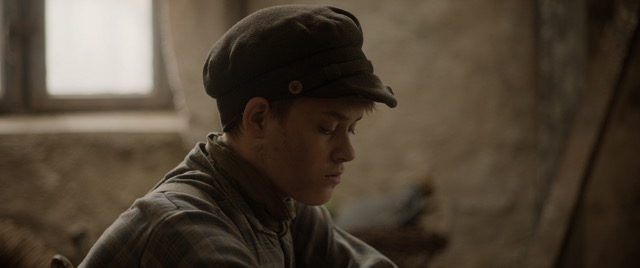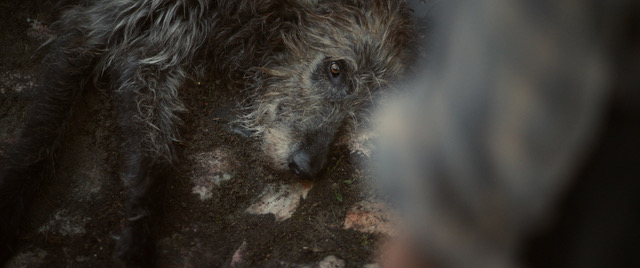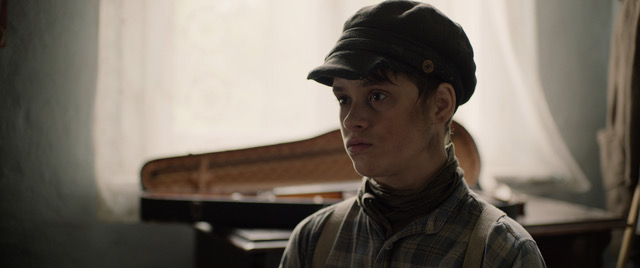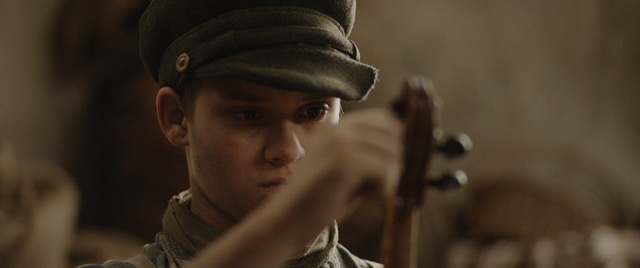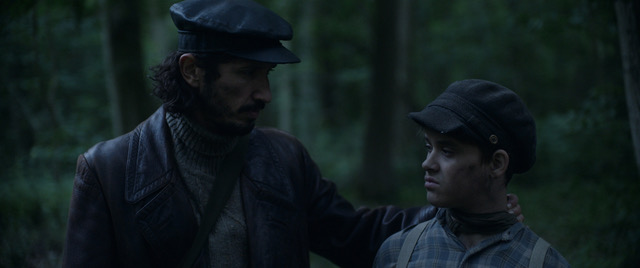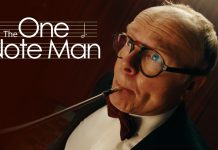Film-maker Andreas Kessler goes back nearly a century to explore the dark oppression that almost changed the world in his dramatic short NAKAM.
Film And TV Now spoke with the film-maker about the short.
FILM AND TV NOW: The imagery of Nazism remains as potent today as it did nearly a century ago. What does it represent overall to you?
ANDREAS KESSLER: To me it is shocking that it still is so present. We should never forget to remember those who suffered from the Nazi regime. But even today autocratic leaders still try to separate the world into left and right. With this film we try even generations later not to forget what happened. We try to give an insight into the suffering that the Nazis brought to the world so it would never happen again.
I believe that talking about the past also often helps us to understand the present. We always try to draw similarities and differences between the present and the past in order to estimate in what kind of world we are living in. So, I believe that it is very important to remember what happened in the past to make our future better and more peaceful.
This is based on a true story. What differences and similarities have been explored in the short?
I tried to stick as closely as possible to the true events. The fact that Motele Schlein smuggled explosives through his violin case into the Nazi restaurant was based exactly on the true story. We also did research in the region where the boy and the partisans fought against the Nazis. However, I knew I wanted to tell the story of a young boy who struggled with his plan to execute an attack on the place where he was spending most of his time in.
So, we created the character of Yegor, the pianist with whom Motele plays and who is the only one who builds a real friendship with the boy. Yegor is the person who he’d have to sacrifice for his plan to go through. For me Yegor is a symbol: Violence and death always creates more violence. This is a dilemma which we can see everywhere in the world, even today.
FTVN: The boy is faced with a very difficult dilemma at the outset. Was this something that people of your previous generations went through at the time of the war?
AK: Yes definitely. There were always situations where you would have to leave people behind because they would not make it, or an attack would also hit the wrong ones. To me this is the unforgiving nature of war. In the end there is no victory for anybody because war just provokes the worst in us.
FTVN: Tell us about your cast.
AK: I was honoured to work with so many actors from different nations on one project. In previous films I mostly worked with German actors.
Being now able to work for example with Rostyslav Bome, a Ukrainian Actor, who was part of the Maidan Protests in 2014 and who told me everything about it, was very touching. The work with actors like Anton Krymskiy (Young Motele), Peter Miklusz (August Seeger) and Jevgenij Sitochin (Yegor) was so enriching and one of the best I experienced so far. We shot the film before the war in Ukraine started. We had a very mixed but harmonious cast and crew. It’s a tragedy that now people are divided again because of political beliefs and aggression.
FTVN: Tell us about your production team.
AK: The production was quite big but my producers Max Breuer and Janick Gootz tried to make everything happen. At some days we were up to 50 people on set. I worked with Ukrainian and Russian speaking production designers. This was extremely important since we wanted to be historically accurate.
A wonderful surprise was when we discovered our Assistant Director Marina Gerber. She comes from Ukraine, speaks Ukrainian, Russian and German. She took care of the whole translation, the language and told me two weeks before the shooting that her ancestors were partisans fighting in the same region as young Motele Schlein!
FTVN: Where did you shoot and for how long?
AK: Originally, we wanted to shoot in Ukraine which turned out to be not possible due to the first Covid wave.
Consequently, we decided to shoot in Brandenburg and scouted locations with Marina Gerber and the production designers Natasha Donis and Annchristin Taeuber who made sure we’d be visually as close to Ukrainian landscape and architecture as possible. In the end we found a location where we could build our Ukrainian Restaurant in an empty farm which we could change and decorate however we’d need it.
FTVN: Do you feel that the film also indirectly reflects the current status quo in Ukraine?
AK: I think it shows that these conflicts unfortunately come back in different shapes. Seeing that Ukraine is a war-torn country once again being is very shocking. When I started making the film I didn’t expect it to become so relevant. But looking back into the past always helps to understand the present, I think.
FTVN: This is your diploma film at the Filmakademie Baden-Württemberg. Tell us more about your own personal experience there and what sets it apart from other film faculties like NYU or USC?
AK: It was a very exciting and challenging time at the FABW. What I liked about it was that I was able to do whatever I wanted.
I chose NAKAM as my Diploma project because I worked on that story for many years and realised that it would be more likely to find enough money for it as a short film instead of a feature. Within a few weeks we managed to get 80% of our budget and we knew that we’d be able to make a big short film.
Since our university gave us all the production facilities and equipment we were able to focus entirely on how to tell the story.
FTVN: The production values are impressive. Tell us about working with explosives and costume design.
AK: Very early in the production I knew I wanted to shoot everything in camera. It was very important to me to try to create the most realistic picture of war as possible. The explosion should be as breath taking and brutal as it would be in reality.
Fortunately, the producers supported that idea and we started making it work. Laura Jasmin Schäffler took care of the costumes. I met her on another historic set and was stunned by how detailed she was working. Even when I would take a picture with my iPhone it would already look like a historically taken photo. So I knew I wanted to work with her and asked her.
FTVN: Who and what are your key cinematic influences?
AK: Louis Malle, David Fincher, Claude Chabrol.
What I love about those directors is that they often create tension in a very sublime way. The calmest moment can be the tensest. Also, their visual approach and the precision of the images is phenomenal. Everything follows a carefully planned, yet unpredictable narration.
FTVN: Would you like to explore the issues and themes in this film in a feature idea?
AK: I am currently working on a feature film script about this topic. It explores the world of Jewish Ukrainian Partisans even more.
FTVN: What issues and themes are you keen to explore in future work?
AK: I love to tell stories out of a very intimate perspective. It often treats relationships. So in NAKAM I also tried to focus on the relationship of Mitka and Yegor, the two musicians in the restaurant. Furthermore, I want to explore the tension that comes out of an abusive teacher-student relationship in a university and the shame that it causes for the student. This would be set in the present though.
FTVN: How has the festival circuit helped your film?
AK: Having the world premiere in Cleveland was great. We won BEST LIVE ACTION SHORT. I flew to the festival and got in contact with other festivals. So, we are currently running on many festivals in the US and in Germany. Soon there will be one in Miami. The feedback from the festivals was great so far and talking to the audiences very touching.
FTVN: Finally, what are you most proud of about this film?
AK: I am most proud of the fact that people are touched by my film. People come to me and tell me that the story of Motele Schlein touched them and that they completely understood the complexity of his dilemma and the struggles he is going through. To express in a film that there are no easy answers to complex questions was very important to me and seems to be understood which makes me very happy.


